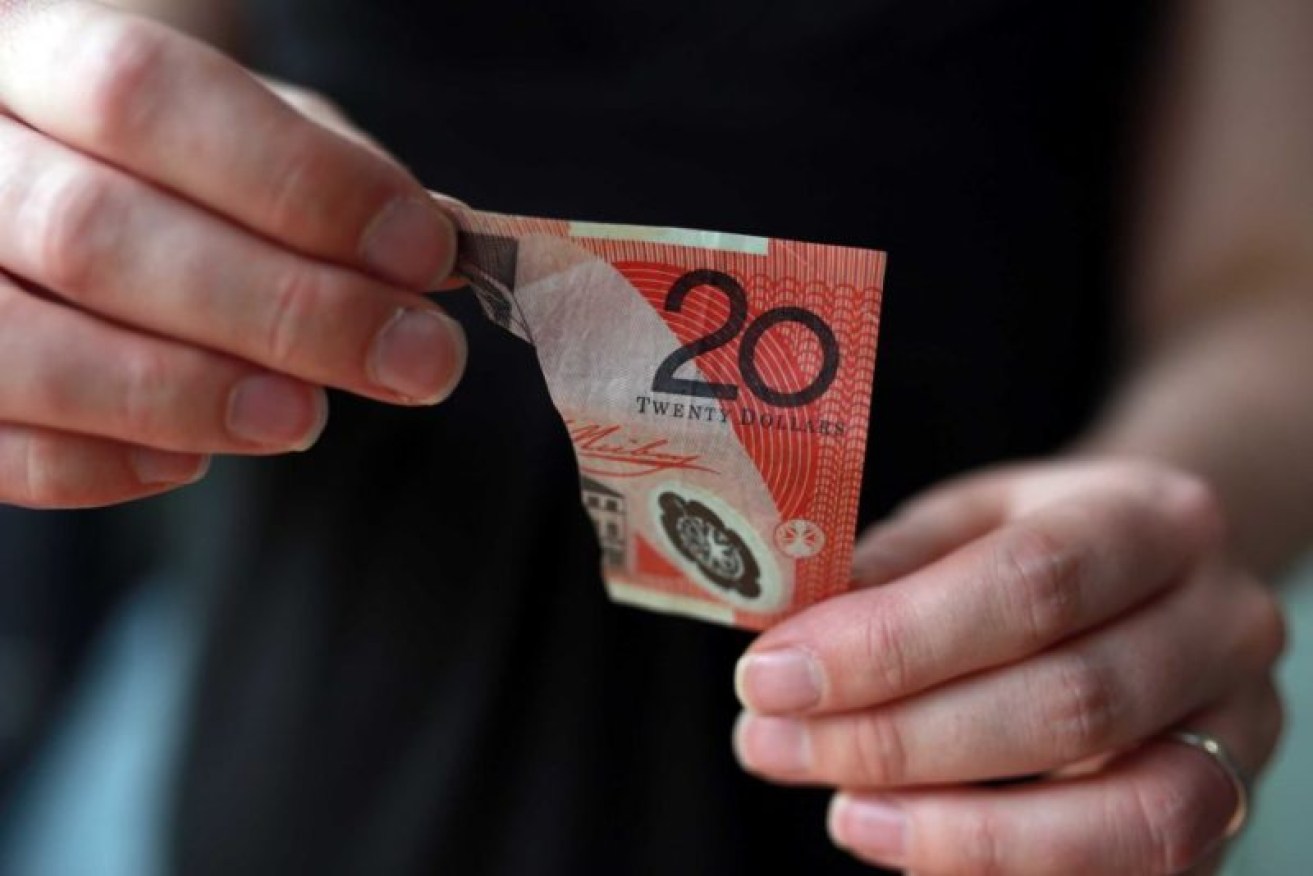Yes, your pay packet is shrinking, ABS reveals

Only one in 10 undertpaid workers take steps to recover their wages, the report found. Photo: AAP
Wages rose by an anaemic 0.5 per cent between January and March, marking the first time in three years that pay rises officially failed to keep pace with the cost of living.
If you count back 12 months from March, wages increased by only 1.9 per cent, the most paltry annual growth since Australia’s statistics bureau started calculating the figure in 1998.
And compared to the previous quarter, things got even worse. Earlier this year, the ABS thought wages grew by 0.5 per cent in the December quarter. But it’s now revised that figure down to 0.4.
The problem for hard-working Australians is that inflation has been increasing while our pays barely moved.
This means prices rose faster over the last 12 months than our earnings, eroding ever so slightly the amount of goods and services we can afford. This is what economics call “real wage growth” — it’s what your money really buys. And it’s not a pretty sight.
Public servants fared the best. Over the last 12 months, their wages increased by +2.4 per cent (without adjusting for inflation), while their private sector counterparts had to make do with +1.8 per cent.
Then let’s drill down into specific industries. For the March quarter, the best performers were: public education and training (+1.0 per cent); electricity, gas, water and waste services (+0.7); financial and insurance services (+0.6); private manufacturing (+0.6); private education and training (+0.6); and arts and recreation services (+0.6).
The worst industry for pay rises was accommodation and food services (+0.1 per cent in March quarter), which is the same sector facing penalty rate cuts.
We already know, from another ABS report, that Australia’s best-paid workers are in mining (average wage $117,600); electricity, gas, water and waste services ($86,300); and financial and insurance services ($84,900).
As for the states and territories, Western Australia recorded the slowest wage growth over the past 12 months at +1.2 per cent (again, not adjusted for inflation), while Tasmanian wages grew the most at +2.3.
Treasurer Scott Morrison has labelled record low wage growth the “biggest challenge” facing the economy. That was before he released a budget that predicted away the problem.
According to the budget papers, this drop in real wages should be a temporary blip on an otherwise glorious economic recovery. Treasury boffins predicted wage growth would almost double within four years, to be +50 basis points higher than inflation in 2017-18, +75 in 2018-19, +100 in 2019-20 and +125 in 2020-21.
But barely anyone believes those very sunny numbers, as they seemed designed to plug holes in budget revenue.
Shadow Treasurer Chris Bowen slammed the forecasts on Wednesday as “unrealistic” and said Labor wanted to strip responsibility for compiling these estimates from Treasury and give them to the more independent Parliamentary Budget Office so they wouldn’t be “beholden to political circumstances”.
“[It’s a] big bounce given the spare capacity and record underemployment we are currently seeing in the labour market together with the cut in penalty rates and the fact the budget papers show the unemployment rate is not expected to fall by very much,” Mr Bowen said.
The Reserve Bank has a more conservative outlook on wage growth.
We learned on Tuesday, based on newly published minutes, that the central bank board voiced serious concerns about the state of Australia’s labour market at its monthly meeting on May 2. It expected only gradual improvement in unemployment and wage growth.
The good news, however, is that the RBA sees it as “unlikely that wage growth would slow much further”.








